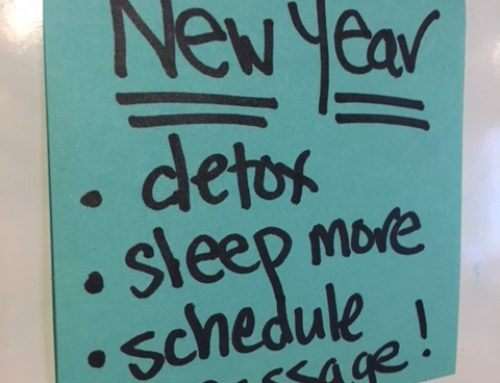Many people who are energetic and outgoing in the long sunny days of spring and summer find themselves to be melancholic, depressed, and perhaps even fatigued in the long dark nights of winter. This is termed “Seasonal Affective Disorder” (SAD). Although this common disorder can be quite debilitating, there are good options to help.
Exercise: Over 100 studies have shown that people who exercise are effected by SAD and other forms of depression much less than people who don’t exercise. Although exercising outside may be difficult in the winter time, especially if you are limited to the early morning or evening hours, most people have health clubs close by or can set up an exercise room in their own homes.
Diet: Maintaining adequate blood sugar throughout the day is one important key to help with depression. Eat small frequent meals low in processed foods and simple carbohydrates (“sugary” foods) and high in fruits, vegetables, grains, and other sources of protein. Protein is also necessary to help provide amino acids, precursors to neurotransmitters in the brain. Adequate protein intake is 0.8 to 1.2 grams of protein per kg. of body weight. The formula is: (Your weight in pounds) x (0.8 to 1.2) 2.2. Sedentary individuals should use 0.8, average activity use 1.0, very athletic use 1.2.
Light therapy: Full spectrum lighting has been shown to be an excellent treatment for SAD and other forms of clinical depression. The antidepressant effect of light therapy is probably due to restoring proper melatonin synthesis and secretion by the pineal gland leading to re-establishment of the proper circadian rhythm. Light boxes use very intense full spectrum lighting, the equivalent of 25 100-watt bulbs. It is recommended that a person look into the light for 15 – 30 minutes each morning while sitting 2 to 3 feet away. Regular full spectrum light bulbs are also available. Use these to replace regular light bulbs around your home and office for a more bright and realistic light.
Nutritional supplements:
Numerous studies have shown St. John’s Wort (Hypericum perforatum) to be effective in helping to relieve symptoms associated with SAD and other forms of depression, including apathy, feelings of worthlessness, insomnia, sleep disturbances, and anxiety.
5-HTP a precursor to serotonin and has been shown to be effectively converted to serotonin in the body and help relieve depression and insomnia. Studies have shown significant clinical response in two to four weeks at a dosage of 50 to 300 mg 3 times a day.
NOTE: do not combine St. John’s Wort or 5-HTP with any antidepressant medications without the consent of your naturopathic doctor or other physician knowledgeable in herbs, nutrition, and pharmaceuticals.
L-tyrosine has also been shown to be effective in relieving depression, both on its own and in combination with other therapies. In a study, about 1 out of 5 people who initially responded well to 5-HTP had a relapse of depression after a month. These people responded particularly well to the addition of L-tyrosine.
B-vitamins, particularly B-6, B-12, and folic acid also have an excellent track record in helping to relieve depression. Vitamin D has also been linked to an “overall greater sense of well being.” You should have your Vitamin D levels tested by your doctor to help monitor therapy.
Homeopathy can also be effective in helping to relieve the symptoms of depression, also. Homeopathics can be taken individually, usually prescribed by a homeopathic doctor, or in combination products.
A deficiency of essential fatty acids (EFA’s) has been shown in recent studies to be a contributor to depression. A diet high in saturated fats and low in essential fatty acids results in decreased fluidity of cell membranes, which directly influences neurotransmitter synthesis, signal transmission, uptake of serotonin and other neurotransmitters, and neurotransmitter binding. Most studies used fish oil as the source of the EFA’s. A person must regularly consume fish oils for two to three months to allow the EFA’s to be effectively incorporated into cell membranes.
The treatment of SAD is usually multifactorial. A combination of exercise, proper diet, light therapy, and nutritional supplements can greatly enhance your energy, outlook, and overall happiness in the face of the long dark nights of winter.



Leave A Comment